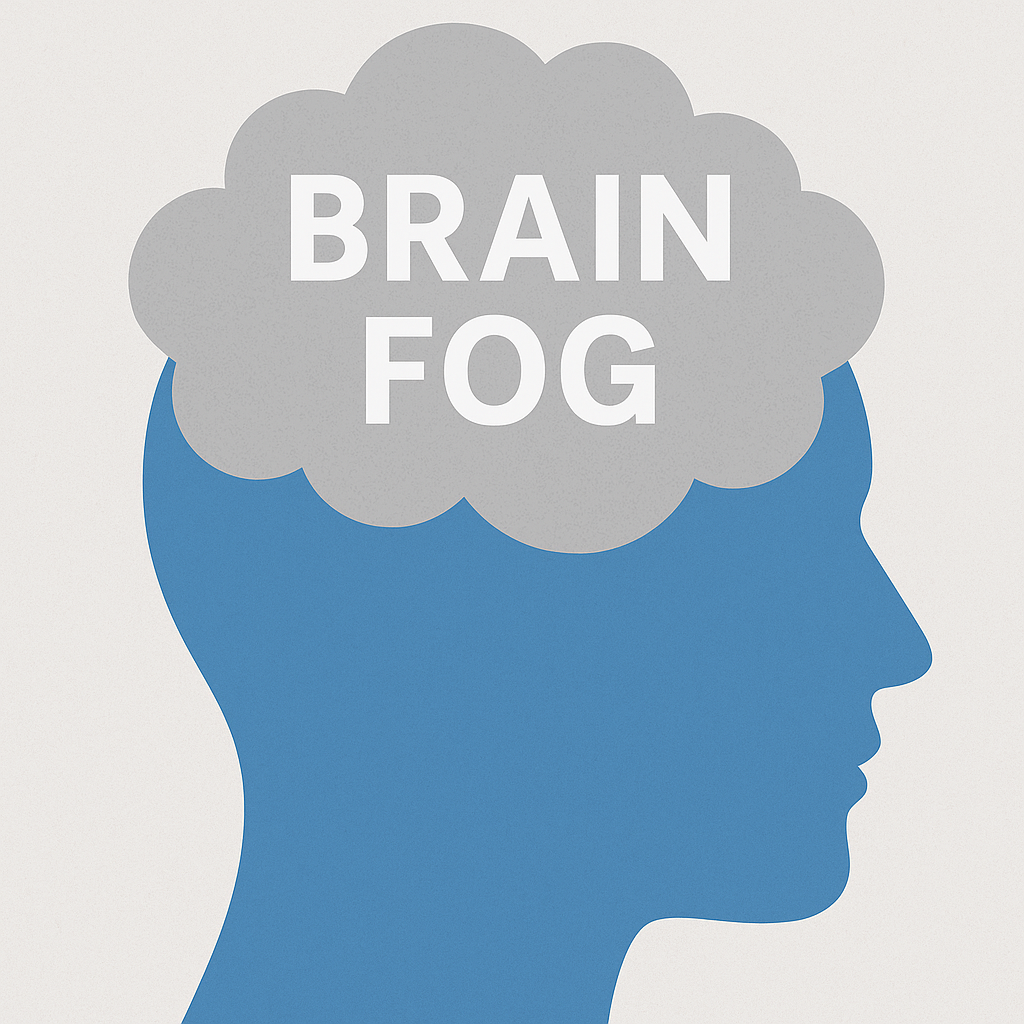Brain Fog: Medical Causes You Shouldn’t Ignore


As physicians, we often encounter patients who complain of “brain fog.” They describe it as a state where their mind feels cloudy, concentration becomes difficult, memory slips more frequently, and decision-making slows down. While this is not a medical diagnosis in itself, it is a symptom that warrants attention. Brain fog can be temporary, related to lifestyle factors, or it can point toward an underlying medical condition that requires evaluation and treatment.
Sleep Deprivation and Circadian Rhythm Disturbances
One of the most common medical causes of brain fog is inadequate or poor-quality sleep. Insufficient sleep affects attention, memory consolidation, and cognitive performance. Patients with sleep apnea, restless legs syndrome, or chronic insomnia often present with persistent brain fog. Circadian rhythm disruptions, such as those caused by night shifts or jet lag, can mimic similar symptoms.
Endocrine and Metabolic Disorders
Hormonal imbalance is another critical cause. Hypothyroidism, adrenal insufficiency, and poorly controlled diabetes mellitus can all impair brain function. Fluctuating blood glucose levels, particularly hypoglycemia, can cause confusion and poor concentration. In older patients, undiagnosed vitamin B12 deficiency or folate deficiency may also present as mental clouding.
Neurological and Psychiatric Conditions
Mild cognitive impairment, early dementia, multiple sclerosis, and post-stroke changes can manifest initially as brain fog. Psychiatric illnesses such as depression and anxiety frequently present with difficulty concentrating and slowed thinking, often mistaken for early dementia by patients and families. Screening for mood disorders is essential in these cases.
Infections and Inflammatory States
Chronic low-grade inflammation is increasingly recognized as a contributor. Autoimmune diseases such as systemic lupus erythematosus, celiac disease, and multiple sclerosis often include cognitive dysfunction among their symptoms. Post-viral syndromes, such as “long COVID,” are now well-known for producing prolonged brain fog due to persistent immune activation and neuroinflammation.
Medications and Substance Use
Sedatives, antihistamines, certain anticonvulsants, and chemotherapy drugs are notorious for causing mental dullness. Alcohol overuse, recreational drugs, and even excessive caffeine withdrawal can present with transient brain fog. A careful review of the medication list is often enough to identify the culprit.
Cardiovascular and Pulmonary Conditions
Reduced oxygen supply to the brain—whether from anemia, heart failure, or chronic obstructive pulmonary disease—can manifest as brain fog. Patients with atrial fibrillation or uncontrolled hypertension are also at risk of small vessel ischemic changes in the brain, further impairing cognitive clarity.
When to Seek Medical Attention
While occasional forgetfulness or poor focus after a sleepless night may not be alarming, persistent or worsening brain fog should not be ignored. If it is accompanied by headaches, weakness, vision changes, speech difficulty, or sudden memory loss, urgent evaluation is necessary to rule out stroke, seizures, or other serious neurological disorders.
Physician’s Note:
Brain fog should not be dismissed as a benign inconvenience. In many cases, it is the earliest warning signal of underlying medical illness. A structured history, targeted physical examination, and selected laboratory tests can uncover treatable causes. Addressing sleep hygiene, optimizing chronic disease control, correcting nutritional deficiencies, and managing psychiatric conditions often lead to dramatic improvement in mental clarity.
1. For Medical Students
Brain Fog: Understanding the Symptom Beyond the Surface
As a medical student, you will often hear patients describe a “cloudy mind,” “slowed thinking,” or “trouble concentrating.” This is collectively referred to as brain fog, a non-specific symptom with diverse etiologies. Understanding it requires connecting physiology with pathology.
• Sleep and circadian rhythm: Sleep deprivation, insomnia, and obstructive sleep apnea reduce cognitive performance by impairing memory consolidation and neuronal recovery.
• Endocrine/metabolic causes: Hypothyroidism, hypoglycemia, poorly controlled diabetes, and vitamin B12 deficiency interfere with neurotransmitter function and neuronal metabolism.
• Neurological causes: Early dementia, multiple sclerosis, post-stroke sequelae, and migraines can present with mental clouding.
• Psychiatric causes: Depression and anxiety often reduce concentration, mimicking early dementia.
• Inflammatory and infectious causes: Autoimmune conditions (e.g., lupus, celiac disease) and post-viral syndromes (notably long COVID) cause neuroinflammation.
• Medications/substances: Sedatives, antihistamines, alcohol, and chemotherapy agents can impair alertness.
• Cardiovascular/respiratory causes: Anemia, hypoxemia, and heart failure may reduce cerebral oxygenation.
Clinical Takeaway: Brain fog is not a diagnosis but a signal. As a student, learn to ask probing questions, identify associated red flags (memory loss, focal neurological signs, speech disturbance), and always consider reversible causes.
2. For Young Doctors
Brain Fog: A Symptom That Demands Clinical Vigilance
As a young doctor, you will encounter many patients complaining of “mental clouding.” Dismissing this as stress or fatigue is a common mistake. Instead, approach it systematically:
• History & Pattern Recognition
• Ask about sleep quality, mood, medications, and substance use.
• Identify sudden versus gradual onset.
• Look for associated neurological deficits.
• Medical Causes to Consider
• Endocrine/metabolic: Hypothyroidism, uncontrolled diabetes, hypoglycemia, B12/folate deficiency.
• Neurological: Dementia, post-stroke, seizures, multiple sclerosis.
• Psychiatric: Depression, anxiety, burnout.
• Inflammatory/infectious: Long COVID, autoimmune disorders.
• Medication/substance related: Benzodiazepines, antihistamines, alcohol.
• Cardio-pulmonary: Anemia, hypoxia, small vessel ischemia in uncontrolled hypertension/AF.
• Investigations & Management
• Begin with targeted labs: CBC, thyroid function, fasting glucose, HbA1c, vitamin B12.
• Consider neuroimaging if neurological signs are present.
• Review and deprescribe sedating medications where possible.
• Address sleep hygiene, nutrition, and psychiatric comorbidities.
Clinical Pearl: Brain fog is frequently multifactorial. Even when one cause is identified (e.g., hypothyroidism), others (e.g., poor sleep, depression) may coexist. Adopt a holistic correction approach rather than a single-diagnosis mindset.
3. For General Practitioners
Brain Fog: A Practical Approach in Primary Care
Patients presenting with “brain fog” are common in primary care, and for them, this symptom can be distressing. As a GP, your role is to identify treatable causes, provide reassurance, and recognize when urgent referral is warranted.
• Common Causes in General Practice:
• Sleep disturbances (insomnia, sleep apnea).
• Hypothyroidism, diabetes (especially hypoglycemia episodes), and nutritional deficiencies.
• Depression, anxiety, and chronic stress.
• Medication effects (sedatives, antihistamines, anticonvulsants).
• Post-viral syndromes, especially long COVID.
• Red Flags Requiring Referral:
• Acute confusion, sudden speech disturbance, focal neurological signs.
• Rapid progression of memory loss or functional decline.
• Associated seizures or new-onset severe headaches.
• Primary Care Workup:
• Basic labs: CBC, fasting glucose, HbA1c, thyroid function, vitamin B12, electrolytes.
• Medication review and lifestyle assessment (diet, alcohol, sleep hygiene).
• Screening for depression and anxiety.
• Management Strategy:
• Correct underlying metabolic or hormonal imbalances.
• Treat psychiatric conditions and refer when needed.
• Encourage regular sleep, physical activity, and balanced nutrition.
• Provide clear patient education to reduce anxiety around the symptom.
Practical Insight: In primary care, the majority of brain fog cases are reversible when underlying causes are identified early. Continuity of care and patient trust are vital in managing this multifactorial complaint.
